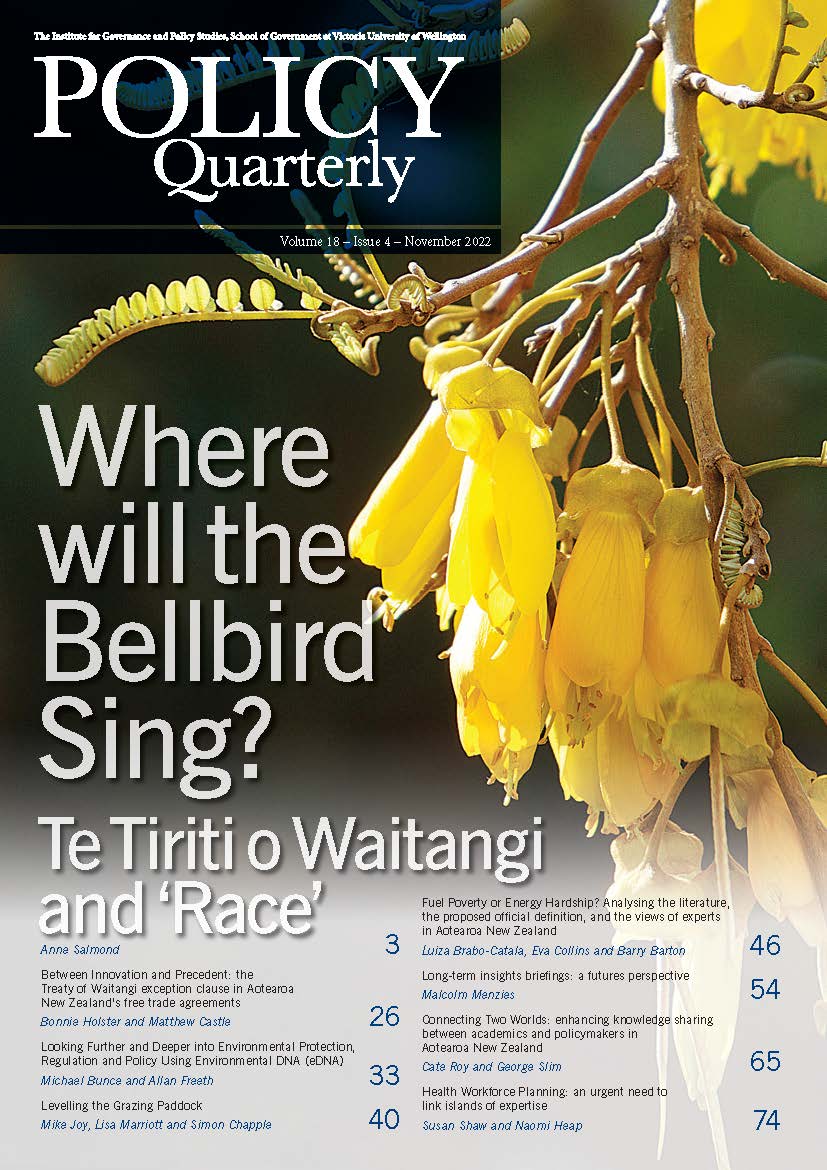Where Will the Bellbird Sing? Te Tiriti o Waitangi and ‘Race’
DOI:
https://doi.org/10.26686/pq.v18i4.8019Keywords:
relational philosophy, Treaty of Waitangi, cross-cultural relations, race, colonialism and citizenshipAbstract
This article investigates deep philosophical differences between the complex relational networks that underpin te Tiriti o Waitangi as originally written, debated and signed by the rangatira of various hapū and British officials in New Zealand in 1840, and the canonical re-framing of the Treaty as a binary ‘partnership between races’, or ‘between the Crown and the Maori race’, in the 1987 ‘Lands’ case judgment by the Court of Appeal, at the height of the neo-liberal revolution in New Zealand.
After exploring comparative analyses of the colonial origins and uses of the idea of ‘race’, and the risks associated with binary framings of citizenship by race, ethnicity or religion in contemporary nation states, the article asks whether relational thinking and institutions – including tikanga and marae – might not offer more promising ways of understanding and honouring te Tiriti o Waitangi, and fostering cross-cultural experiments in Aotearoa New Zealand.
Downloads
Downloads
Published
Issue
Section
License
Permission: In the interest of promoting debate and wider dissemination, the IGPS encourages use of all or part of the articles appearing in PQ, where there is no element of commercial gain. Appropriate acknowledgement of both author and source should be made in all cases. Please direct requests for permission to reprint articles from this publication to Policy-Quarterly@vuw.ac.nz.



